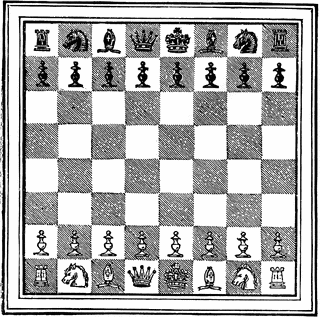Clarity,
Office 17622,
PO Box 6945,
London.
W1A 6US
United Kingdom
Phone/ Voicemail:
+44 (0)20 3287 3053 (UK)
+1 (561) 459-4758 (US).

Thanks very much, Luis:Today I found this interesting article about Go and Chinese divination[/URL]

 乾 qián [heaven, father]
乾 qián [heaven, father]Luis also has an I Ching version were there is a procedure to consult the Yi by playing a game of chess
-not too convincIng IMO.
Also an interesting connection between Liubo (六博) and TLV mirrors. I've been fascinated by TLV mirrors and their history and use for a long time. Have quite a bit of info and I'm always collecting what I find about them.P.S.;also checl Steve Marshall's site for a very interesting article(and link)on the ancient game of Liubo,another boardgame from China with clear divinatory connotations.
Hola Charly;
Robert Temple in his books"The Genius of China" and 'Netherworld" claims that the game of chess was indeed invented in China and then went to India....
... there was a dice element as well as a move element, and there were many intermediate forms between pure throwing and placement followed by combat moves. All these go back to China of the Han and pre-Han times, i.e. to the -4th or -3th century, and similar techniques have persisted down to late times in other cultures.
Thoughts on The Origin of Chess by Joseph Needham, (Cambridge), 1962
http://www.goddesschess.com/chessays/needham1.html
Correct, it is from a book by Louis T. Culling. The darn book is almost impossible to find (at least when I was searching for it) For that reason I scanned it to share it. it is here

The Indian hypotesis provides ancestral coverage for the lobby of moden chess players that see Indoeuropeans as a sort of totemic respectable ancestors instead of devaluated ancient chinese people.
Martin:Lol! Well, in any case, the current world chess champion (Viswanathan Anand) is Indian.
Chess was not invented in India. Chess was invented in China.'!!
When I say this to my otherwise well informed fellow chess players, they stare at me with an expression which indicates either horror, dismay or disgust, or some combination thereof. Finally, after a polite pause, they usually say, "I'm sorry. You're wrong. Chess was invented in India. Look it up in H.J.R. Murray."
From: The Origin of Chess By Sam Sloan
the entire 1985 article: http://www.ishipress.com/origin.htm
Correct, it is from a book by Louis T. Culling. The darn book is almost impossible to find (at least when I was searching for it) For that reason I scanned it to share it. it is here
The method is based upon the exact correspondence of the meanings of the six line positions of the hexagram and the nature of the six different chess pieces... [It] PROVES that either King Wan knew of the game or that the game is indeed DESCENDED from the Yi.
page 20 from the book of Cullings
...Chess was invented in China...

... Chess was invented in China...
子曰:Confucius said :
“飽食終日,無所用心,難矣哉!不有博弈者乎?為之,猶賢乎已。”
"If you eat your full all day long, and have nothing to apply your mind to, that is really bad !
Are there not games of chance and skill ?
Would it not be better to play such games than do nothing ?"
Lun Yu 論語 "The Analects of Confucius" (Zhonghua Shuju, 1980) 17.22.
From: The Origins of Go
http://babelstone.blogspot.com/2006/03/origins-of-go.html
Was Confucius a compulsive gambler?
Charly
Not to thread on stereotypes here of being politically incorrect, but, Chinese are notorious gamblers, much more so, per capita, than most other cultures.
As for Confucius, who knows. On the other hand, I've yet to meet a perfect "Master," dead or alive...
Jackstraws, Pick-up-Sticks, Spellicans
...Stewart Culin, ... Games of The Orient, originally published by the University of Pennsylvania in 1895, and reprinted by Charles E. Tuttle Company, Rutland, Vermont, in 1958, 177 pages.
... explains how arrows were first used for divinatory purposes, then as gaming implements for purpose of gambling. Later, by modifying the length of the arrows, these became "throwing sticks" and even later became dice! During this "evolutionary" process, the original arrow feathers (and shapes) gave rise to the practice of carving and decorating the "sticks". Eventually, each type of stick took on a "value". In time the divinatory purpose disappeared, and the use of the sticks for gambling purposes remained.
rom: http://gamesmuseum.uwaterloo.ca/VirtualExhibits/Tablegames/Jackstraws/index.html
Stephen Albert said to me:
"In a riddle whose answer is chess, what is the only prohibited word?"
I thought a moment and replied, "The word chess."
"Precisely," said Albert. "The Garden of Forking Paths is an enormous riddle, or parable, whose theme is time; this recondite cause prohibits its mention. To omit a word always, to resort to inept metaphors and obvious periphrases, is perhaps the most emphatic way of stressing it.
...
When he died, his heirs found nothing save chaotic manuscripts ... but his executor--a Taoist or Buddhist monk--insisted on their publication."
I replied... The book is an indeterminate heap of contradictory drafts. I examined it once: in the third chapter the hero dies, in the fourth he is alive. As for the other undertaking of Ts'ui Pên, his labyrinth . . ."
"Here is Ts'ui Pên's labyrinth," he said, indicating a tall lacquered desk.
"An ivory labyrinth!" I exclaimed. "A minimum labyrinth."
"A labyrinth of symbols," he corrected. "An invisible labyrinth of time...
Ts'ui Pe must have said once: I am withdrawing to write a book. And another time: I am withdrawing to construct a labyrinth. Every one imagined two works; to no one did it occur that the book and the maze were one and the same thing ...
J.L.Borges: The Garden of Forking Paths
From: http://courses.essex.ac.uk/lt/lt204/forking_paths.htm
Clarity,
Office 17622,
PO Box 6945,
London.
W1A 6US
United Kingdom
Phone/ Voicemail:
+44 (0)20 3287 3053 (UK)
+1 (561) 459-4758 (US).